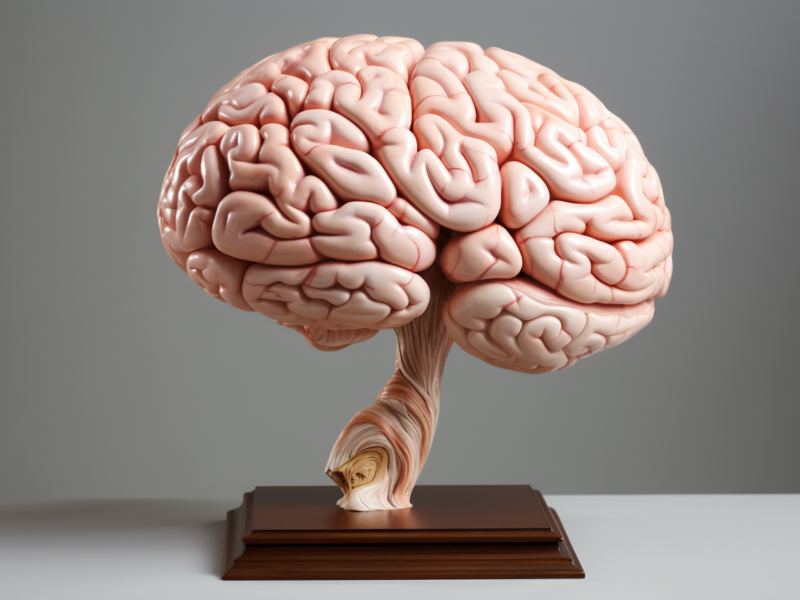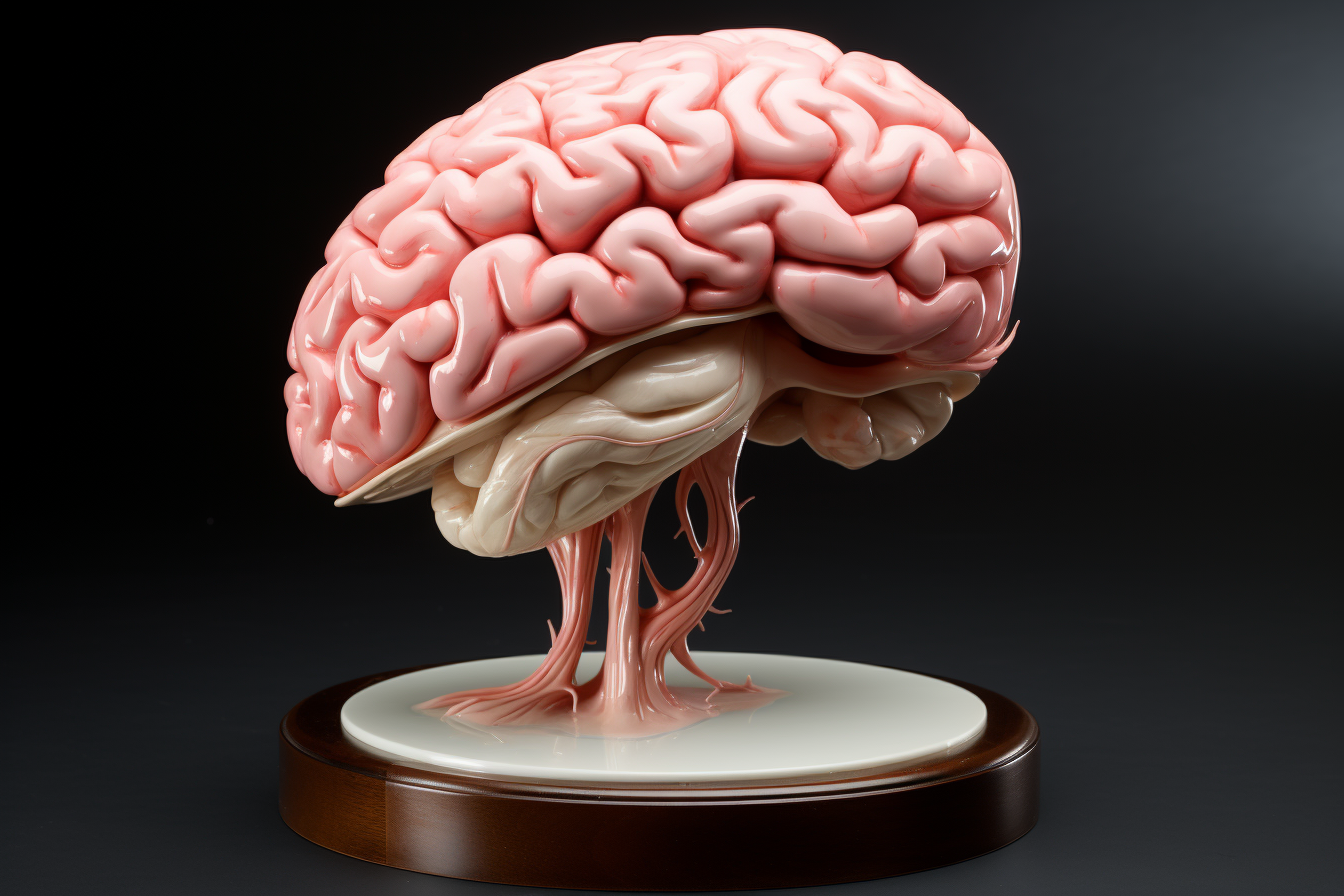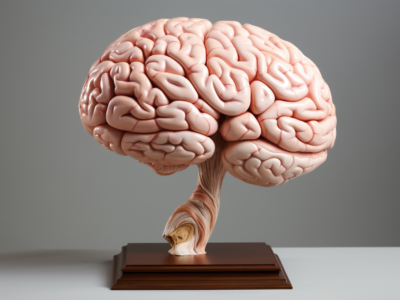The intricate workings of the human brain have long fascinated scientists and researchers around the world. With countless studies aimed at unraveling its mysteries, one area of interest that has garnered significant attention is gamma-aminobutyric acid (GABA), a neurotransmitter crucial for maintaining proper brain function. In this article, we delve into the role of GABA in promoting brain health and enhancing cognitive function. By exploring its mechanisms, benefits, and potential applications, we aim to shed light on how GABA can be harnessed to optimize mental performance and improve overall well-being.
The Role of GABA in Brain Health
Gamma-aminobutyric acid (GABA) plays a vital role in brain health and cognitive function. As the primary inhibitory neurotransmitter in the central nervous system, GABA helps regulate neuronal activity by reducing excessive excitability. By binding to GABA receptors, it has a calming effect on the brain, promoting relaxation and easing anxiety. Additionally, GABA is involved in various important processes such as sleep regulation, memory formation, and mood stabilization.
 Insufficient levels of GABA have been associated with numerous neurological disorders including epilepsy, insomnia, depression, and anxiety disorders.
Insufficient levels of GABA have been associated with numerous neurological disorders including epilepsy, insomnia, depression, and anxiety disorders.
Research suggests that enhancing GABAergic transmission through medications or natural compounds may help alleviate symptoms of these conditions and improve overall brain health.
Furthermore, several studies have demonstrated that increased GABA availability can enhance cognitive performance by improving attention span, mental clarity, and information processing speed.
Understanding the intricate workings of GABA is crucial for optimizing mental performance and maintaining proper brain functioning. Whether through pharmaceutical interventions or lifestyle modifications like exercise or meditation that naturally boost levels of this critical neurotransmitter.
GABA and its Impact on Cognitive Function
GABA, gamma-aminobutyric acid, plays a pivotal role in regulating cognitive function. As the main inhibitory neurotransmitter in the brain, GABA helps to regulate neural excitability and maintain a balance between neuronal activity levels. By reducing excessive stimulation and promoting relaxation, GABA has been shown to enhance cognitive performance.
Studies have demonstrated that optimal GABA levels are essential for various cognitive functions such as attention, memory, and decision-making abilities. Lower levels of GABA have been associated with conditions like anxiety disorders and impaired cognition. On the other hand, increased GABA activity has been linked to improved focus and mental clarity.
The potential applications of enhancing GABA activity are vast. Some researchers suggest that increasing GABAergic transmission through medication or natural interventions could potentially benefit individuals with cognitive impairments or psychiatric disorders. Understanding the intricate relationship between GABA and cognitive function opens up opportunities for developing novel strategies to improve brain health and optimize mental performance.
Mechanisms of GABA in the Brain
GABA, or gamma-aminobutyric acid, plays a vital role in the human brain by acting as an inhibitory neurotransmitter. Its main function is to reduce neuronal excitability and regulate the balance between stimulation and inhibition in the brain. GABA achieves this by binding to certain receptors called GABAA receptors, which are present throughout the central nervous system.
Once GABA binds to its receptors, it causes a decrease in neuronal activity by opening chloride channels and allowing chloride ions to enter the neuron. This influx of chloride hyperpolarizes the cell membrane, making it less likely for an action potential (nerve impulse) to be generated. In essence, GABA acts as a brake on excessive neural activity, preventing neurons from becoming overstimulated and maintaining overall brain equilibrium.
The activation of GABAA receptors not only helps regulate neuronal excitability but also influences other important processes such as anxiety levels, sleep-wake cycles, memory formation, and motor control. Dysfunction or imbalances in GABA signaling have been associated with various neurological conditions including epilepsy, anxiety disorders, and sleep disorders. Consequently, understanding the mechanisms underlying GABA function can provide valuable insights into developing therapeutic strategies targeting these disorders.
The Benefits of GABA for Mental Performance
GABA, or gamma-aminobutyric acid, plays a vital role in maintaining proper brain function and promoting overall mental health. Acting as the brain’s primary inhibitory neurotransmitter, GABA helps to regulate brain activity by reducing excessive neural firing and preventing overstimulation.

By doing so, it assists in creating a calm and balanced mental state conducive to optimal cognitive performance.
One of the key benefits of GABA for mental performance is its ability to enhance focus and concentration. By modulating neural activity, GABA promotes better information processing, enabling individuals to stay attentive and engaged for longer periods.
Additionally, this neurotransmitter has been associated with improved memory formation and retrieval, helping individuals retain information more effectively.
Furthermore, research suggests that GABA may have potential therapeutic applications in treating various neurological disorders such as anxiety, depression, and sleep disorders. By increasing levels of GABA through supplementation or other means like exercise or relaxation techniques, individuals may experience reduced symptoms of these conditions and an improvement in overall mental well-being.
In summary,GABA plays a significant role in maintaining healthy brain function. Its ability to regulate neural activity leads to enhanced focus and concentration while also improving memory functioning. Furthermore, it shows promise as a therapeutic agent for various neurological disorders. The understanding of how GABA can optimize mental performance opens up possibilities for utilizing this neurotransmitter to boost cognitive capabilities even further. Together, greater exploration into the mechanisms, benefts, and applications can help harness the potential power of Gaba on our daily lives.
GABA and its Potential Applications in Brain Health
GABA, or gamma-aminobutyric acid, plays a vital role in maintaining optimal brain function. As a neurotransmitter, GABA acts as an inhibitory agent, regulating the communication between neurons and helping to calm excessive electrical activity in the brain. This has significant implications for brain health and cognitive function. By promoting relaxation and reducing anxiety levels, GABA can enhance focus and concentration while also improving sleep quality. Furthermore, GABA has been found to have neuroprotective properties by reducing oxidative stress and protecting against neuronal damage.
The potential applications of GABA in brain health are far-reaching. Research suggests that supplementing with GABA may help alleviate symptoms of various neurological conditions such as ADHD, depression, and epilepsy. Moreover, studies have indicated that increased levels of GABA are associated with improved memory retention and learning abilities. Additionally, individuals experiencing chronic stress or anxiety may benefit from GABA supplementation to promote relaxation and reduce symptoms of nervousness or tension.
In conclusion, understanding the role of GABA in promoting brain health is crucial for optimizing cognitive function. With its ability to regulate neuronal activity and promote relaxation, GABA shows promise as a potential tool for enhancing mental performance in various contexts. Further research is needed to fully uncover the mechanisms behind its effects on the brain but harnessing the power of this neurotransmitter could lead to exciting advancements in improving overall brain health.

Enhancing Cognitive Function with GABA: Strategies and Considerations
Enhancing cognitive function with GABA, a neurotransmitter vital for brain health, has become an important area of research. The intricate workings of the human brain have captivated scientists worldwide, leading to numerous studies focused on understanding the role of gamma-aminobutyric acid (GABA) in maintaining proper brain function. This article explores how GABA plays a crucial role in promoting brain health and improving cognitive abilities. By examining its mechanisms, potential benefits, and possible applications, we aim to shed light on the ways in which GABA can be utilized to optimize mental performance and enhance overall cognitive function.
Understanding the significance of GABA in our brains is pivotal for uncovering strategies that harness its potential benefits. Research suggests that increasing GABA levels may lead to improved cognition by enhancing focus, reducing anxiety and stress levels, supporting better sleep quality, and potentially aiding in memory formation. Moreover, exploring various methods for stimulating or supplementing GABA production presents opportunities for optimizing mental performance. However promising these findings are, it’s essential to consider individual differences and consult healthcare professionals or experts before incorporating any interventions involving enhanced GABA into one’s daily routine.
Optimizing Mental Performance: Harnessing the Power of GABA
GABA, or gamma-aminobutyric acid, plays a vital role in maintaining the proper functioning of the brain. As a neurotransmitter, it facilitates communication between neurons and helps regulate neuronal excitability. Numerous studies have shown that GABA is essential for promoting brain health and enhancing cognitive function. By inhibiting excessive neural activity, GABA promotes relaxation, reduces anxiety and stress levels, and improves mood. Additionally, GABA has been implicated in memory formation and learning processes.
Understanding the mechanisms behind GABA’s benefits opens up potential applications for optimizing mental performance. By supplementing with GABA or engaging in activities that increase its production naturally (such as exercise or meditation), individuals may be able to enhance their cognitive abilities. Furthermore, research suggests that modulating GABAergic activity could provide therapeutic options for various neuropsychiatric disorders such as anxiety disorders, depression, epilepsy, and schizophrenia.
Harnessing the power of GABA offers exciting possibilities for improving overall brain function. Whether through supplementation or lifestyle changes aimed at increasing natural production, effectively utilizing this neurotransmitter can optimize mental performance and positively impact numerous aspects of cognitive wellbeing. Further research into understanding how to maximize these effects will undoubtedly provide important insights into unlocking our full mental potential.
To Summarize:
GABA, or γ-aminobutyric acid, plays a crucial role in cognitive function and brain health, especially as we age. Recent studies, some of which were sponsored by the National Institutes of Health, have explored GABA concentration in relation to cognitive performance in older adults. The research indicates a correlation between higher GABA concentrations in the frontal cortex and improved cognitive function, specifically in domains such as working memory and executive function.

GABA concentration was measured using magnetic resonance spectroscopy and cognitive performance was assessed using the Montreal Cognitive Assessment.
The results imply that maintaining or increasing GABA concentration, particularly in the frontal and posterior cortices, may help combat age-related cognitive decline and cognitive dysfunction.
However, the exact relationship between GABA concentration and specific cognitive domains, as well as the long-term effects of changes in GABA, are yet to be determined. Furthermore, the generalizability of these results needs careful consideration as studies usually have exclusion criteria, limiting their applicability to all.
Researchers at the University of Florida’s Center for Cognitive Aging and McKnight Brain Institute are continuing to investigate these intriguing findings. The effect of GABAergic neurotransmission on brain plasticity, functional connectivity, and cognitive deficits is also being explored.
This complex field of study is continually evolving, highlighting the importance of staying informed and sharing sensitive information responsibly. Future investigations should aim to understand the differential and physiological effects of GABA on cognitive performance in both healthy and cognitively impaired adults.
Commonly Asked Questions:
Q: What is GABA?
A: GABA (gamma-aminobutyric acid) is a neurotransmitter in the brain that is involved in regulating brain activity and communication between neurons.
Q: How does GABA affect brain health?
A: GABA plays a crucial role in maintaining brain health and cognitive function. It helps to reduce neuronal excitability and promote relaxation, which can improve mental clarity and focus.
Q: What are the benefits of GABA for cognitive function?
A: GABA has been shown to enhance cognitive function by reducing anxiety and stress, improving focus and attention, and enhancing memory and learning abilities.
Q: Can GABA help with anxiety?
A: Yes, GABA is often used as a natural remedy for anxiety due to its calming effects on the brain. It can help reduce feelings of worry, stress, and promote a sense of relaxation.
Q: How can I increase GABA levels in the brain?
A: There are several ways to increase GABA levels naturally, including practicing stress-reducing techniques such as yoga and meditation, getting regular exercise, and consuming foods rich in GABA or its precursors, such as certain fermented foods and green tea.
Q: Are there any medications that increase GABA levels?
A: Yes, there are certain medications that can increase GABA levels in the brain. These medications, known as GABAergic drugs, are commonly prescribed for conditions such as anxiety, insomnia, and epilepsy.
Q: Can GABA supplements improve cognitive function?
A: While some studies suggest that GABA supplements may have a beneficial effect on cognitive function, more research is needed to determine their effectiveness. It is always best to consult with a healthcare professional before starting any new supplement regimen.
Q: Are there any side effects of GABA supplementation?
A: GABA supplementation is generally considered safe for most people. However, some individuals may experience mild side effects such as drowsiness, dizziness, or an upset stomach. It is important to follow the recommended dosage and consult with a healthcare professional if you have any concerns.
Q: Can GABA be used to treat neurological disorders?
A: GABA has shown promise as a potential treatment for certain neurological disorders such as epilepsy and Parkinson’s disease. However, further research is needed to fully understand its effectiveness and safety for these conditions.
Q: Is GABA regulated by any governing bodies?
A: GABA and GABA supplements are not regulated by any specific governing bodies. However, it is important to choose reputable brands and ensure that the product has undergone quality testing to ensure purity and potency.



 GABA and Their Role in Cardiovascular Health
GABA and Their Role in Cardiovascular Health
